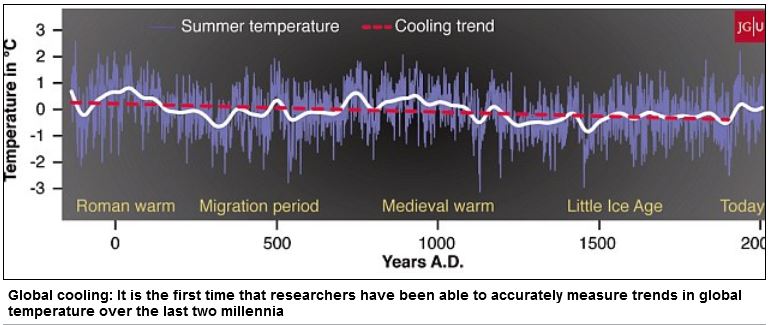In March a group of forty-nine NASA scientists wrote to Charles Bolden, NASA Administrator, expressing their concern that NASA’s climate alarm advocacy is not based in science and is undermining NASA’s credibility:
The Honorable Charles Bolden, Jr. NASA Administrator NASA Headquarters Washington, D.C. 20546-0001
Dear Charlie,
We, the undersigned, respectfully request that NASA and the Goddard Institute for Space Studies (GISS) refrain from including unproven remarks in public releases and websites. We believe the claims by NASA and GISS, that man-made carbon dioxide is having a catastrophic impact on global climate change are not substantiated, especially when considering thousands of years of empirical data. With hundreds of well-known climate scientists and tens of thousands of other scientists publicly declaring their disbelief in the catastrophic forecasts, coming particularly from the GISS leadership, it is clear that the science is NOT settled.
The unbridled advocacy of CO2 being the major cause of climate change is unbecoming of NASA’s history of making an objective assessment of all available scientific data prior to making decisions or public statements.
As former NASA employees, we feel that NASA’s advocacy of an extreme position, prior to a thorough study of the possible overwhelming impact of natural climate drivers is inappropriate. We request that NASA refrain from including unproven and unsupported remarks in its future releases and websites on this subject. At risk is damage to the exemplary reputation of NASA, NASA’s current or former scientists and employees, and even the reputation of science itself.
For additional information regarding the science behind our concern, we recommend that you contact Harrison Schmitt or Walter Cunningham, or others they can recommend to you.
Thank you for considering this request.
via WUWT.
A month ago the journal Nature Climate Change published a paper by a group of German scientists demonstrating that the world’s temperature has been declining for the last 2.000 years:
How did the Romans grow grapes in northern England? Perhaps because it was warmer than we thought.
A study suggests the Britain of 2,000 years ago experienced a lengthy period of hotter summers than today. German researchers used data from tree rings – a key indicator of past climate – to claim the world has been on a ‘long-term cooling trend’ for two millennia until the global warming of the twentieth century.
This cooling was punctuated by a couple of warm spells. These are the Medieval Warm Period, which is well known, but also a period during the toga-wearing Roman times when temperatures were apparently 1 deg C warmer than now. They say the very warm period during the years 21 to 50AD has been underestimated by climate scientists.
Lead author Professor Dr Jan Esper of Johannes Gutenberg University in Mainz said: ‘We found that previous estimates of historical temperatures during the Roman era and the Middle Ages were too low.
Marc Morano and Lord Monckton explain why the whole notion of climate refugees is bunk:
And if you need more, try the NIPCC 2011 interim report which lists dozens of peer reviewed papers published in the last two years questioning the science of man made global warming.
Consensus? Pull the other one.



